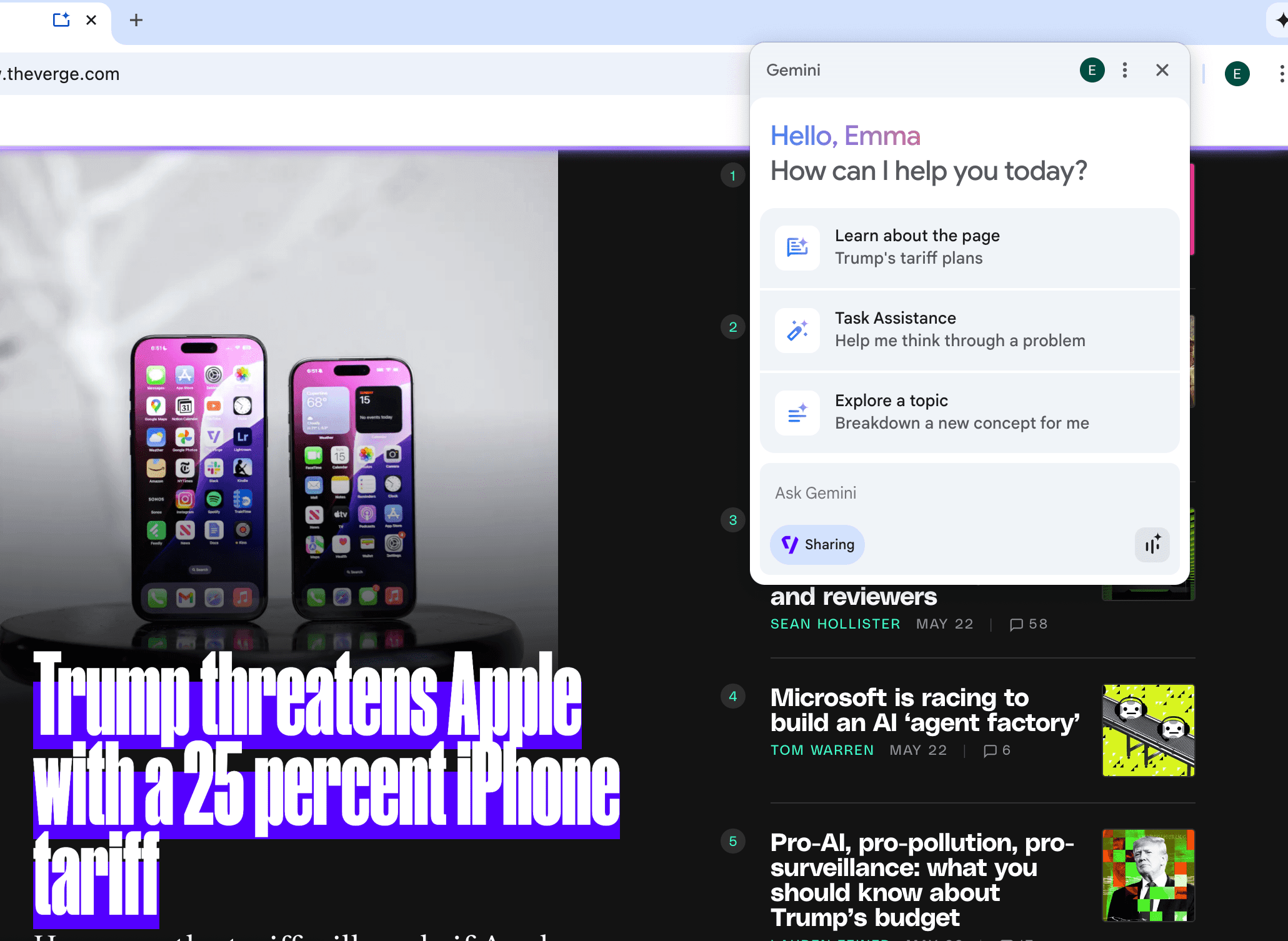Google just fired the opening shot in the AI browser wars. The tech giant is making Gemini completely free in Chrome while rolling out agentic capabilities that'll book your dinner reservations and reschedule deliveries. Starting today, Mac and Windows users get access to what could be the most aggressive AI browser play yet - directly challenging OpenAI's ChatGPT Agent and positioning Chrome as your personal digital assistant.
Google just dropped the paywall on its most ambitious browser AI yet. The company announced today that Gemini in Chrome is going completely free for US users on Mac and Windows, while simultaneously unveiling agentic capabilities that could transform how we interact with the web. This isn't just another chatbot integration - it's Google's bid to own the AI-powered browsing experience before competitors cement their positions. According to Charmaine D'Silva, Chrome's director of product management, who briefed reporters Wednesday, the timing reflects how seriously Google takes the emerging browser AI battlefield. OpenAI's ChatGPT Agent can already navigate websites and complete tasks, while Anthropic's Claude introduced Computer Use last year for similar browser automation. Now Google's fighting back with the world's most popular browser as its weapon. The agentic features arriving in the coming months sound like science fiction made real. Gemini will grocery shop from lists in your email, reschedule package deliveries, book hair appointments, and make restaurant reservations. D'Silva emphasized that 'high-risk' or 'irreversible' actions will include checkpoints, though Google wouldn't specify a launch timeline when pressed by The Verge. What's shipping immediately is equally impressive. Desktop Chrome users can now deploy Gemini across multiple tabs simultaneously, comparing products and summarizing information from different sources. The AI remembers your browsing history contextually, so you can close dozens of tabs and simply ask tomorrow: 'Show me those team-building activities I was researching yesterday.' D'Silva calls this the end of tab hoarding - a behavioral shift that could redefine how we browse. The enterprise angle reveals Google's broader strategy. Gemini now integrates with Google Workspace for both individual and Enterprise users, plus Calendar, YouTube, Maps, and other Google services. 'Enterprises are a pretty important focus for Chrome generally,' D'Silva noted, highlighting how Google's using its ecosystem advantage against standalone AI browsers. On mobile, Android users already had Gemini integration, but can now share entire page contexts instead of just visible content for 'deeper questions.' iPhone users get Chrome app access soon - a significant expansion considering Apple's tight platform control. The competitive landscape is heating up fast. This past July, combined its Deep Research and Operator features into ChatGPT Agent, while launched its own Comet browser the same month. Atlassian just spent $610 million acquiring The Browser Company, makers of AI-infused browser Dia, signaling how much money's flowing into this space. Google's advantage lies in Chrome's massive market share and deep integration with services people already use daily. While competitors build from scratch, Google's retrofitting the world's most popular browser with AI superpowers. The free pricing removes the last barrier to adoption, potentially making Gemini the default AI assistant for billions of users. But the real test comes when those agentic features launch. If Gemini can reliably handle complex multi-step tasks like booking travel or managing schedules, it could establish Chrome as the AI browser standard. The question isn't whether AI browsers will reshape how we work online - it's which company will control that transformation.












